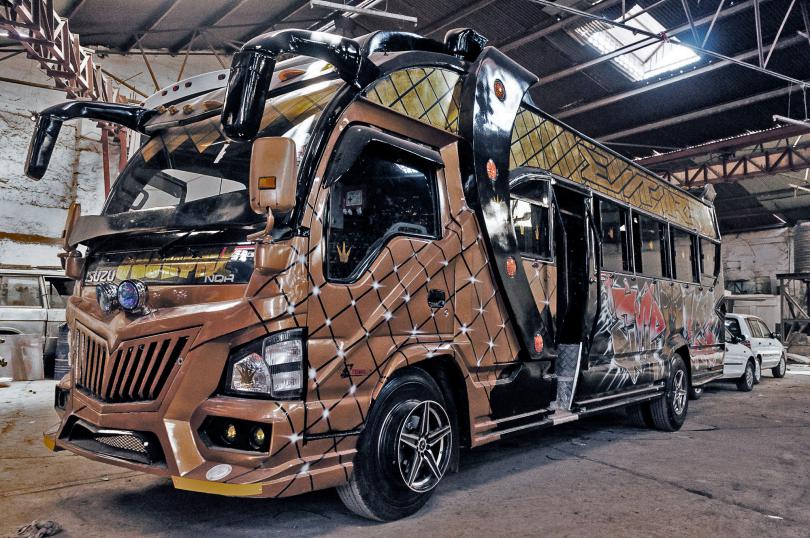The good and the bad of the Matatu industry in Kenya
Updated on October 15,2022

Imagine for a second that you are in the heart of Nairobi CBD and you need to get to Ngong. Imagine that all you needed to make the short trip was a train ride that was going to take you a few minutes to get to Ngong town. I know, it is hard to imagine that given that Kenya’s railway network is very limited. For a majority of Kenyans who do not have the luxury of owning personal vehicles, public transport would not only be their preferred choice of transport, but also the only option that would be affordable for them. Matatus, the country’s most popular mode of transport, have been around for several decades now, and have grown in numbers all across the country to become an industry of its own offering employment opportunities both directly and indirectly to thousands of Kenyans. The Matatu industry, which largely consists of privately owned 14 seater or 25 seater vehicles is a largely unregulated industry, with the government estimating that it was worth over 200 billion Kenyan shillings two years ago. An unregulated industry of such magnitude is bound to have extremes resembling the proverbial two sides to a coin. The good and the bad as I have outlined below.
THE BAD
Widely unregulated: The government has tried bringing some sanity into the sector for a long time. While it has made many strides, there is still a lot that can be done to make the industry much better. Great improvements to the sector included the introduction of the Michuki rules in 2004 which led to the introduction and implementation of uniforms for both drivers and conductors, a seating capacity limit, fitting vehicles with speed governors and marking PSV’s with a yellow line. This brought a lot of positive change to the industry although it now feels like the rules have since been thrown out of the window. The most recent attempt at streamlining the industry was the introduction of a bill that required every privately owned Matatu to be part of a Sacco or limited company. Although a lot has been done, there is still more that can be done to improve the sector.
Cartels: it is public knowledge that various cartels run the Matatu industry. Various cartels control various routes in a city, and a Matatu owner is usually required to pay certain daily ‘security’ fees for a Matatu to ply a particular route. When the crew has to pay several cartels and even the police on a single day, it usually eats into the owners daily earnings.
Money laundering front: Since the Matatu industry is largely unregulated, it provides the perfect money laundering front for individuals who wish to legalise illegally acquired money. Some of the country’s suspected drug barons and prominent people in business suspected of running shady businesses have one thing in common. They all run a fleet of Matatus that function to make it seem like they acquired their wealth through legitimate means.
Rowdy Matatu crews: The Matatu crews largely run matatus with the owners of the vehicles having little or no input in how the vehicles are run on a day to day basis. The Matatu crews on the other hand largely consist of individuals who have little or no respect for their passengers. There have been reports of bus conductors throwing passengers from moving vehicles or those who refer to each other or passengers using unprintable expletives. This is not the kind of language that one would want their kids to be exposed to.
THE GOOD
Reliable and convenient means of transport: the majority of Kenyans rely on the Matatu industry to get from one point to another. The industry has an elaborate network of Matatu routes that make it a cheaper mode of transport as compared to taxis.
Source of employment: The Matatu industry provides employment opportunities to thousands of Kenyans. It provides employment directly to drivers, conductors and stage managers. Indirect employment is offered in the form of mechanics, vehicle body builders and electricians. The industry also offers entrepreneurship opportunities to the individuals who start businesses to function to provide services to the industry. Such entrepreneurship opportunities include Matatu dealerships, spare parts dealerships and car washes.
Expression of art: Matatus are the only public service vehicles in the world which are pimped out. It is very common to see Matatus fitted with expensive sound systems complete with LCD screens all to lure passengers to them. The Matatu body is an artist’s canvas, seeing as most of them are painted with various works of art to make them unique and stand out from other Matatus. The Matatu art culture is a unique form of art that is unique to Kenya.
As much as the Matatu industry faces a number of challenges such as the existence of cartels, the fact that the Matatu owners still find the business profitable means there is still potential to make the industry much better. The government should partner with the private sector to come up with ways of better regulating and streamlining the industry. Initiatives such as the proposed cashless fare system which ended up being stillborn will play a big role in eliminating the cartels, police bribing and driver recklessness. This will then lead to a better, robust public service transport system.